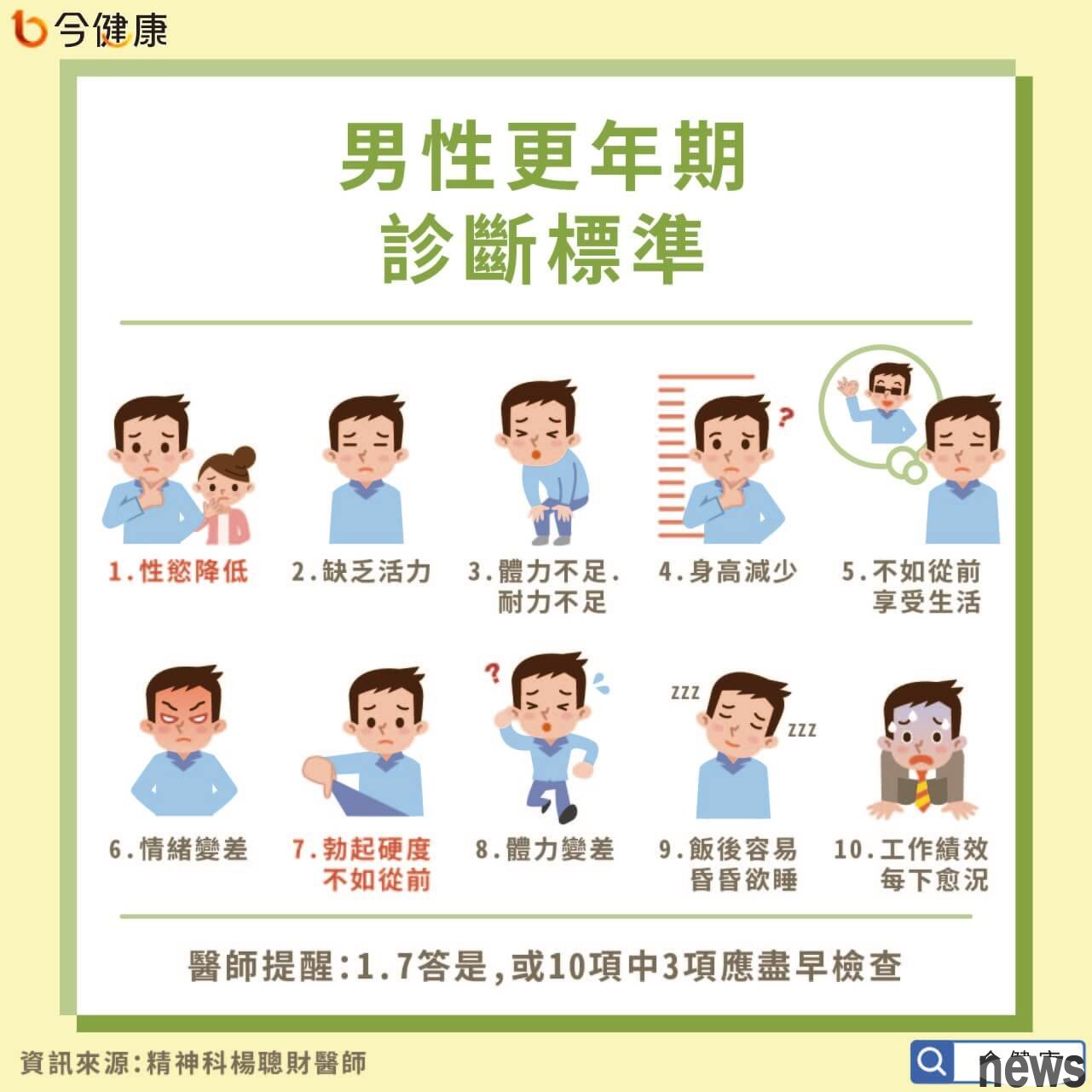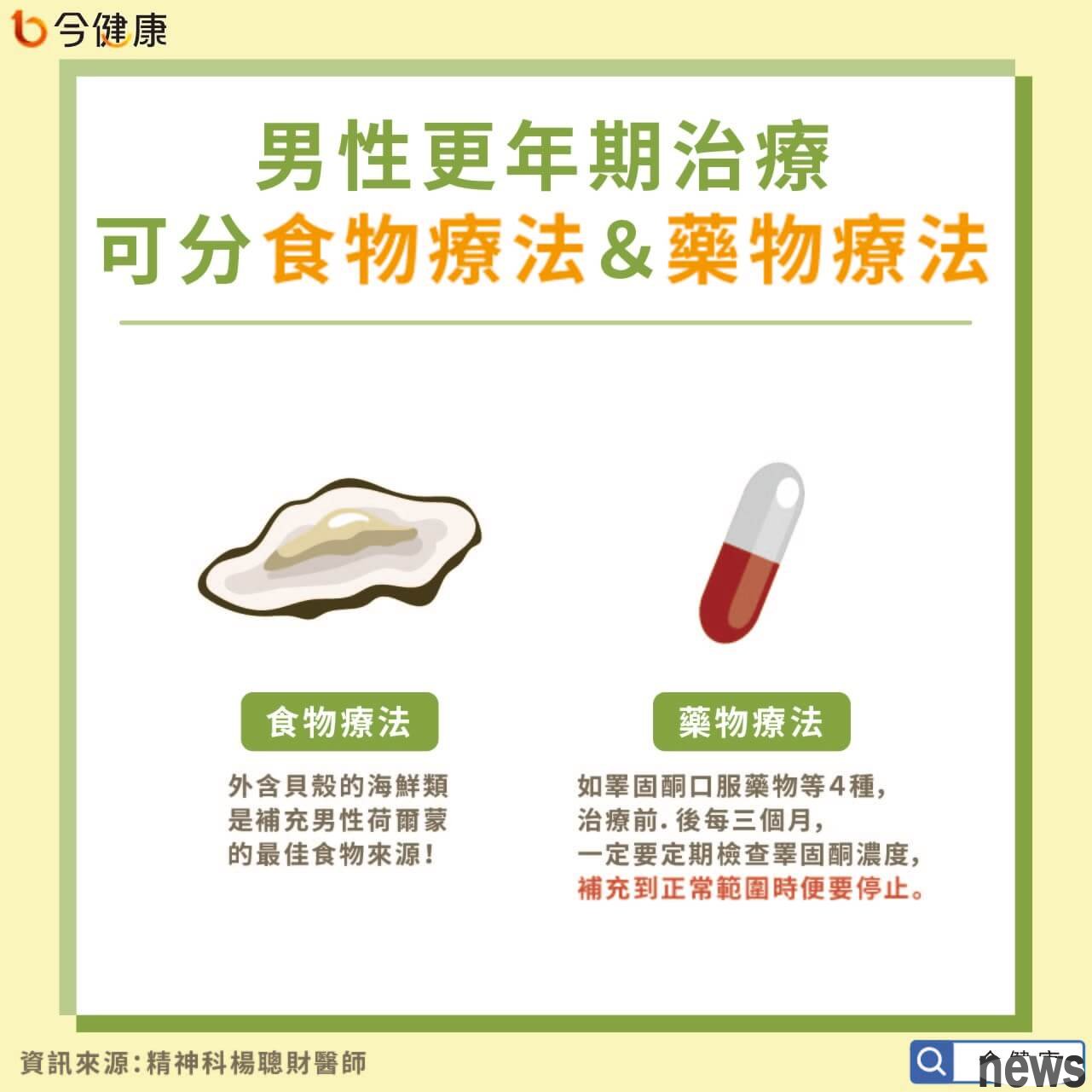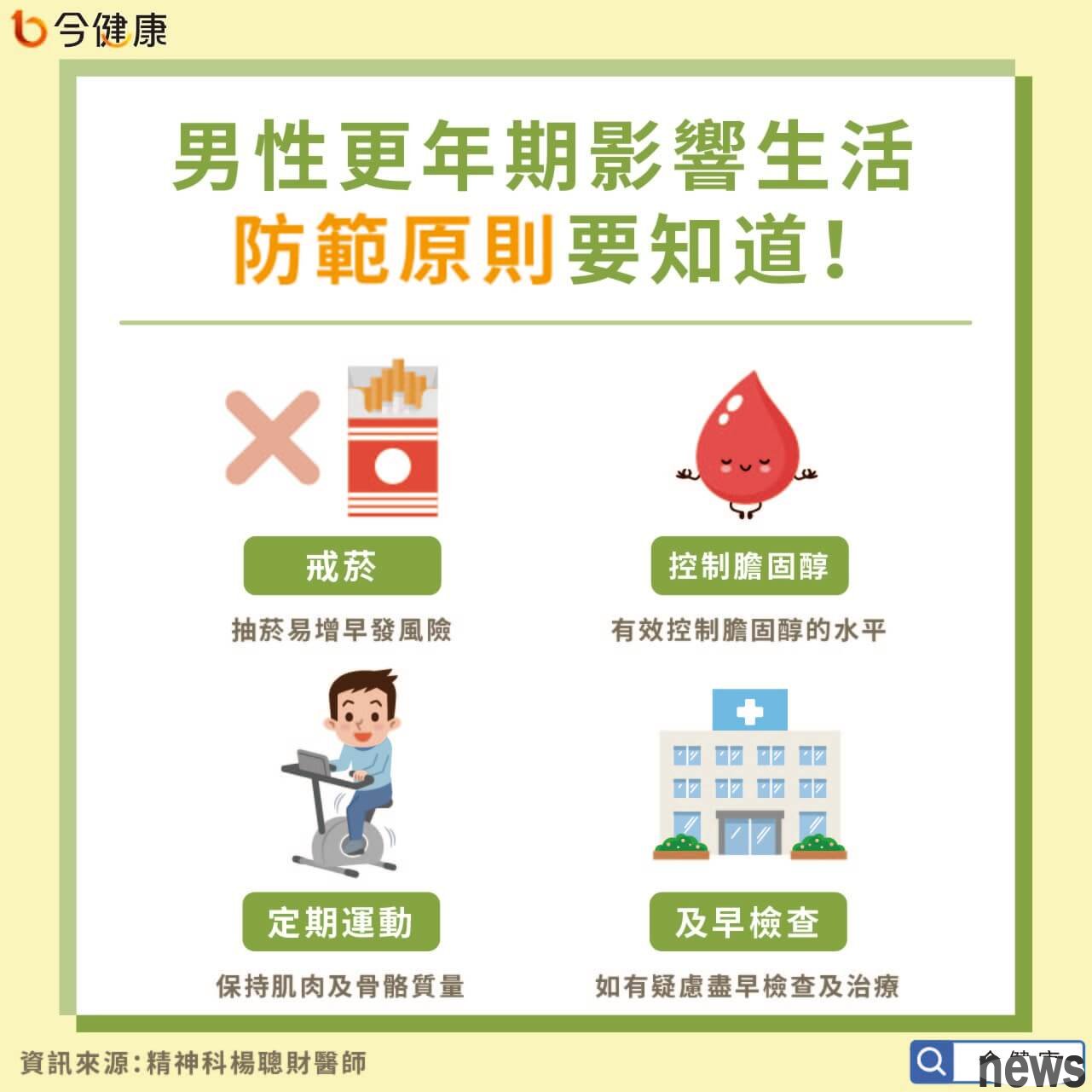Text/Psychiatric Yang Financial Physician
Men and women have menopause, which is one of the myths that everyone wants to break.
The importance of male hormones (testosterone)
Among male hormones, the most important one is testosterone. Its functions include increasing muscle mass and strength, changing the ratio and distribution of fat, maintaining bone density, promoting red blood cells production, stimulating hair growth, and regulating male reproductive function. At the same time, it also affects emotions. Testosterone is prone to depression, unable to lift, and loses its sexual desire when it is low. It is prone to activating and attacking when it is high. Recently, some studies have shown that testosterone affects cognitive function and there are also reports of dementia in animal experiments.
Why do menopausal menopause?
Testosterone is an important hormone for men to maintain normal physiological and psychological operations. It is mainly made by testicles. It is mainly from the age of 25 to 30. It gradually decreases after the age of 30. Unlike women, it does not completely disappear in an instant. At most, the amount of hormones in men is lower than the level (the testosterone concentration index is above 350 ng/dL). Therefore, the male menopause should be more precisely called "Male hormone (testosterone) hypoxia, Testosterone Deficiency Syndrome, simply TDS".

Clinical standards for menopausal "Male Hormone (testosterone) Hypocrises
Professor John E. Morley of St. Louis University, USA, believes that testosterone levels will decrease while aging, which is the cause of decreased cognitive function, physical strength, muscle strength, bone density, and sexual desire. According to the clinical symptoms caused by testosterone deficiency, Morley designed a simple question paper (ADAM, Androgen Deficiency in Aging Male) as a screening for testosterone deficiency:
Are your sexual desires reduced? Do you feel lacking in vitality? Do you realize that you have insufficient physical strength and also lack endurance? Has your height decreased? Have you found that your feeling of "enjoying life" is not as good as before? Are you feeling frustrated and at the same time (or) a bad temper? Is your hardness in your erection not as hard as before? Have you noticed that your physical strength has been much worse in recent exercises? Do you feel drowsy after dinner? Have you found that your work performance has been getting worse recently?If Question 1 or 7 answers "Yes" and (or) any three questions answer "Yes", it is recommended that you undergo further checks for testosterone deficiency and clarify whether there is a male menopause. The most objective scientific method of testing is to draw blood to test male hormones (testosterone). According to research data, about 10% of men over 40 in Taiwan have menopausal difficulties; about 20% to 30% over 50 years old.
Characteristics of male menopause
Menopause is a physical and mental syndrome: physiology, psychology, and environment affect each other. Menopausal menopause is not only the problem of male hormone--decreasing testosterone, but also a physical and mental syndrome. The impact levels include physiology, psychology, spirituality, human relationships, work, sexual intercourse, etc.; each of the aforementioned items is equally important and intertwined, and must be understood and treated.
Men are often set to be "unrivaled iron metal", suffer silently, and be a protector forever, so the Japanese "Men's Real Life" series has caused many men who must be strong and "be strong and be a strong person" to share the same and reciprocal relationship. Anger and depression are closely related to the physiological and sexual problems faced by men when they age.
Many men continue to have mental problems, hypertension, gland prostate problems, diabetes, and sexual dysfunction, which usually affect and cause each other to become evil. 25% of men have hot and tidiness. Although the rate is not as high as that of women, it may be as uncomfortable and difficult. Men complain about their pain by their actions, not from language.
Treatment for menopausal menopause
Treatment objectives aim to improve testosterone concentration in the blood and thereby improve related physical and mental disabilities. The methods of improvement can be divided into two types: food therapy and drug therapy. Food therapy: seafood containing shells is the best food source for supplementing male hormones. Drug therapy: Currently, testosterone drugs include oral, intramuscular injection, skin-absorbing patch and gel type. Testosterone concentration must be checked regularly before and every three months after treatment and stop once it is replenished to normal range.

Prevention of menopause
The male glommon level in all men decreases with age. Some studies have pointed out that smoking and high calcification of male premature menopause can increase the risk of early menopause, so you should quit smoking immediately and effectively control calcification levels. In addition, regular exercise can maintain muscle and bone quality.

Conclusion
Men often have some myths, such as not being able to lose their weakness, not being able to show weakness, not being able to get sick, etc. Please remember: be healthy and consider yourself; health is one, others are zero; early discovery, early treatment. After reading this article, you can also pay attention to whether Anna, whom you love, has any difficulties in this regard. The youngest case I have confirmed to diagnose is 30 years old!
Let me mention: Because menopausal menopause often combines mental and physiological symptoms, choosing a psychiatric medical team to diagnose, improving from physiological, psychological and environmental aspects, is a very important choice!